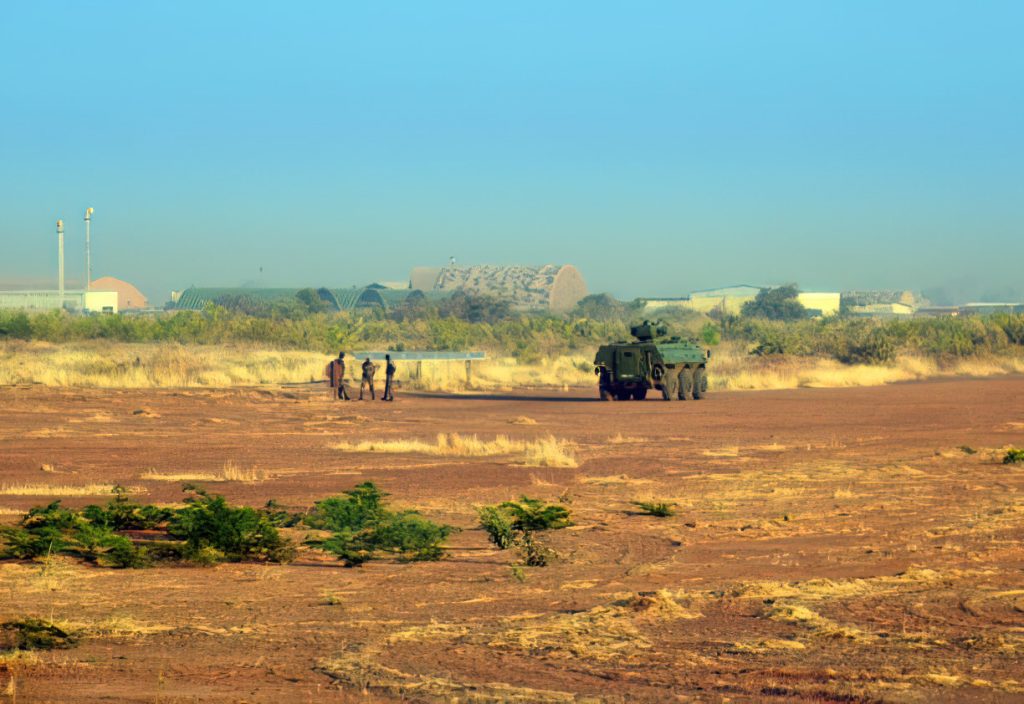Niger military coup sparks volatility in global uranium market

By Eugene Gerden
Prices for uranium and its processing continued to rise in 2023, reaching almost historical records, mainly due to the end of supplies from Russia and the recent military coup in Niger, West Africa. Rebels who seized power in Niger no longer allow uranium to be exported from the Orano deposits in the north of the country.
On July 26, soldiers from Niger’s presidential guard deposed President Mohamed Bazoum and closed the country’s borders. The BBC is reporting that military chiefs from the West African regional bloc Ecowas are currently meeting in the Ghanaian capital, Accra, to discuss the deployment of a standby force for possible military intervention to restore democracy in Niger.
Orano SA is a multinational nuclear fuel cycle company headquartered in Châtillon, Hauts-de-Seine, France that is owned by Areva, Mitsubishi Heavy Industries, Ltd. and Japan Nuclear Fuel Limited. Niger covers a quarter of uranium demand in the EU and about 5% in the world.
In the first half of 2023, global uranium prices continued to break records, noted a report by the French Orano based on data from the UxC agency. The price of uranium oxide (U3O8) at the end of June this year amounted to US$56 per pound, having increased by almost 8% in half a year. Western buyers fear the stopping of supplies from the Russian Federation and are trying to switch to other suppliers in the face of a shortage of uranium processing capacities.
Historically, the main buyers of uranium were 410 nuclear power units with a total capacity of 368.6 GW. The total capacity of nuclear power plants in the EU is 97 GW (22% of total generation), and in the US, 96 GW (18% of total generation).
An additional factor for the rise in uranium prices could be the military coup in Niger. The rebels who seized power have already closed the borders and banned exports of gold and uranium. At the same time, Niger is the leader in terms of supplies of natural uranium to the EU, according to data of the Euratom Supply Agency (the regulator of the nuclear industry in the EU).
In 2021, European consumers bought 2,910 tonnes of uranium from Niger, which accounted for 24.26% of total demand. In second place, in terms of uranium supplies, was Kazakhstan (2,750 tonnes), while Russian Federation was the third at (2,360 tonnes).
Niger also supplies a small amount of uranium to the US with about 686 tonnes exported in 2022.
There are 56 nuclear power plants in France which generate about 63% of the country’s electricity. According to analysts, the current tensions in Niger and possible interruptions in uranium supplies will make it even more difficult for the EU to impose any restrictions on Russia in the nuclear field.
Currently, mining in Niger is carried out only by the SOMAIR company (63.4% from Orano, 36.66% from Niger state company SOPAMIN) near the city of Arlit in the north of the country. Uranium is transported from the quarry to the neighboring Republic of Benin, and then from the port of Cotonou by sea, mainly to France for processing.
There are also promising uranium projects in Niger. In May 2023, Orano signed a global cooperation agreement with Niger authorities for the development of uranium mining at the Imouraren deposit for an investment of €30 million. Canadian company GoviEx Uranium [GXU-TSXV; GVXXF-OTCQX] began financing the Madaouela project this year, and another Canadian company, Global Atomic, [GLO-TSX; GLATF-OTCQX; G12-FSE], is developing the 80%-owned Dasa uranium project. Global Atomic said that their Dasa project remains in force, but due to closed borders, deliveries will be temporarily interrupted. GoviEx Uranium also said that their work was not affected by the current situation in Niger.
Orano’s semi-annual report notes that the unstable situation in Niger has not yet had any impact on the company’s activities and on the value of the company’s assets. The EDF group, which includes Orano, also said France does not depend on any country or deposit for the supply of nuclear fuel. French Orano also mines uranium in Kazakhstan through a joint venture with Kazatomprom and in Canada through a joint venture with Cameco and other companies. Orano also conducts exploration in Gabon, Mongolia, Namibia and Uzbekistan.
According the Russian Kommersant business newspaper, uranium production in Niger is declining due to the depletion of deposits, but in 2023 the country’s annual production is still 4% of global production and 3% of global demand.
According to the World Nuclear Association, in 2022, Niger reduced production to 2,020 tonnes of uranium. However, according to analysts, taking into account the expected growth in uranium production in Canada, Namibia and Kazakhstan in 2023-2024, only long interruptions in production in Niger can lead to a shortage of uranium in the world market.
Niger is the seventh largest uranium producer in the world. According to various estimates, it accounts for between 15% and 17% of the uranium used to generate electricity in France.
